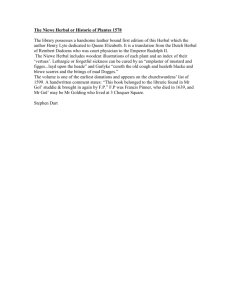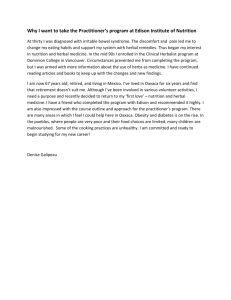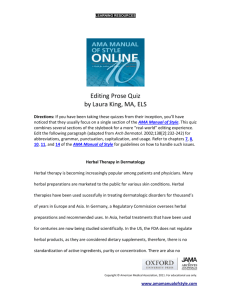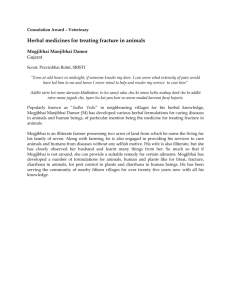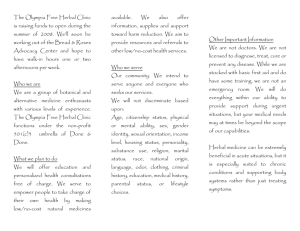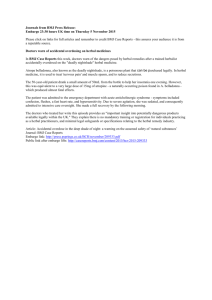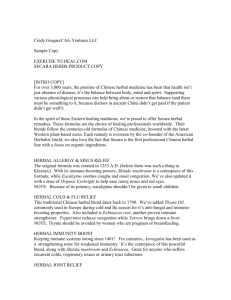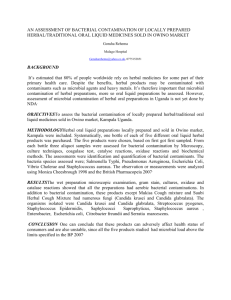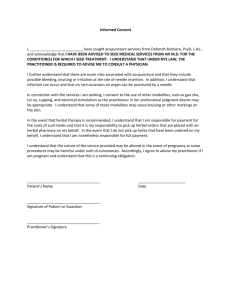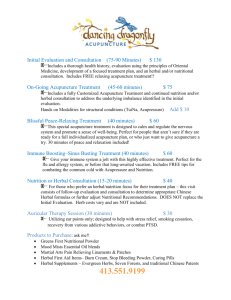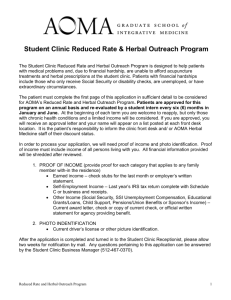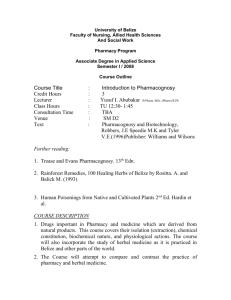ODHIAMBO NELSON MANDELA
advertisement
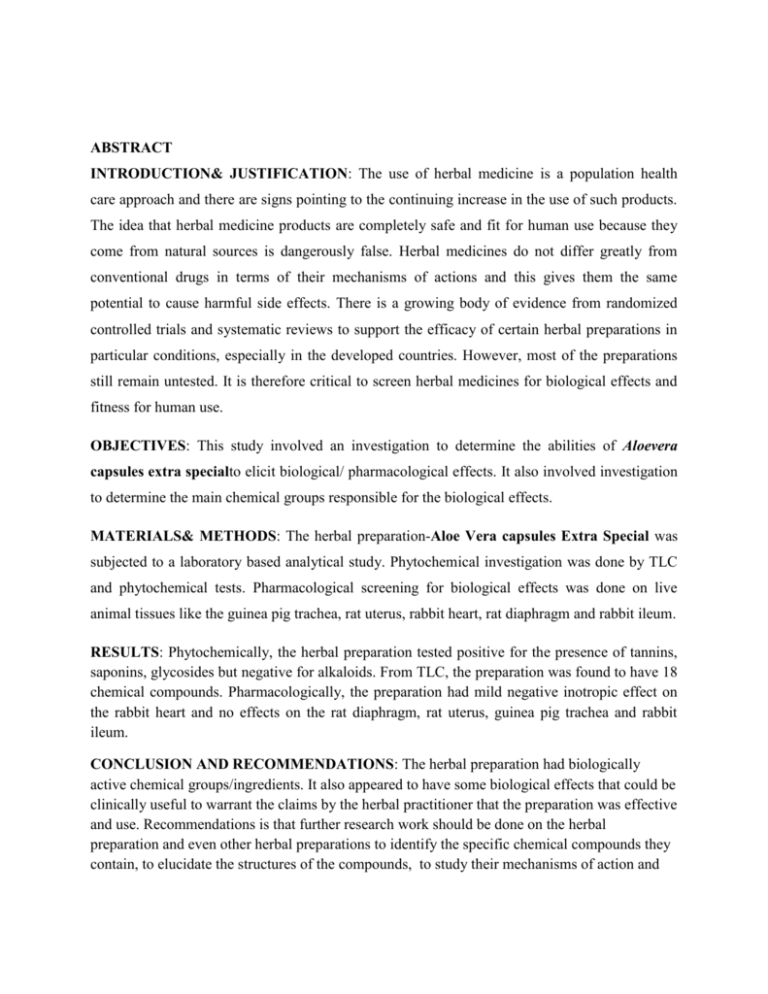
ABSTRACT INTRODUCTION& JUSTIFICATION: The use of herbal medicine is a population health care approach and there are signs pointing to the continuing increase in the use of such products. The idea that herbal medicine products are completely safe and fit for human use because they come from natural sources is dangerously false. Herbal medicines do not differ greatly from conventional drugs in terms of their mechanisms of actions and this gives them the same potential to cause harmful side effects. There is a growing body of evidence from randomized controlled trials and systematic reviews to support the efficacy of certain herbal preparations in particular conditions, especially in the developed countries. However, most of the preparations still remain untested. It is therefore critical to screen herbal medicines for biological effects and fitness for human use. OBJECTIVES: This study involved an investigation to determine the abilities of Aloevera capsules extra specialto elicit biological/ pharmacological effects. It also involved investigation to determine the main chemical groups responsible for the biological effects. MATERIALS& METHODS: The herbal preparation-Aloe Vera capsules Extra Special was subjected to a laboratory based analytical study. Phytochemical investigation was done by TLC and phytochemical tests. Pharmacological screening for biological effects was done on live animal tissues like the guinea pig trachea, rat uterus, rabbit heart, rat diaphragm and rabbit ileum. RESULTS: Phytochemically, the herbal preparation tested positive for the presence of tannins, saponins, glycosides but negative for alkaloids. From TLC, the preparation was found to have 18 chemical compounds. Pharmacologically, the preparation had mild negative inotropic effect on the rabbit heart and no effects on the rat diaphragm, rat uterus, guinea pig trachea and rabbit ileum. CONCLUSION AND RECOMMENDATIONS: The herbal preparation had biologically active chemical groups/ingredients. It also appeared to have some biological effects that could be clinically useful to warrant the claims by the herbal practitioner that the preparation was effective and use. Recommendations is that further research work should be done on the herbal preparation and even other herbal preparations to identify the specific chemical compounds they contain, to elucidate the structures of the compounds, to study their mechanisms of action and even their sites of action in the body to come up with relevant data to support their safety and effectiveness.
